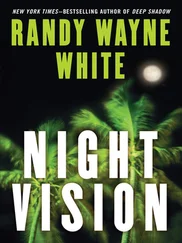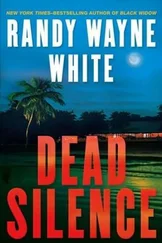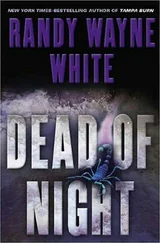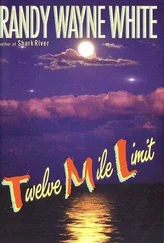Randy White - North of Havana
Здесь есть возможность читать онлайн «Randy White - North of Havana» весь текст электронной книги совершенно бесплатно (целиком полную версию без сокращений). В некоторых случаях можно слушать аудио, скачать через торрент в формате fb2 и присутствует краткое содержание. Жанр: Триллер, на английском языке. Описание произведения, (предисловие) а так же отзывы посетителей доступны на портале библиотеки ЛибКат.
- Название:North of Havana
- Автор:
- Жанр:
- Год:неизвестен
- ISBN:нет данных
- Рейтинг книги:3 / 5. Голосов: 1
-
Избранное:Добавить в избранное
- Отзывы:
-
Ваша оценка:
- 60
- 1
- 2
- 3
- 4
- 5
North of Havana: краткое содержание, описание и аннотация
Предлагаем к чтению аннотацию, описание, краткое содержание или предисловие (зависит от того, что написал сам автор книги «North of Havana»). Если вы не нашли необходимую информацию о книге — напишите в комментариях, мы постараемся отыскать её.
North of Havana — читать онлайн бесплатно полную книгу (весь текст) целиком
Ниже представлен текст книги, разбитый по страницам. Система сохранения места последней прочитанной страницы, позволяет с удобством читать онлайн бесплатно книгу «North of Havana», без необходимости каждый раз заново искать на чём Вы остановились. Поставьте закладку, и сможете в любой момент перейти на страницу, на которой закончили чтение.
Интервал:
Закладка:
Yeah, she could probably handle it. A primary characteristic of successful women is their ability to deal quickly with the lingering stupidities of men. The smart ones accomplish it so effortlessly that they can drive a pin through the heart without bruising an ego. Dewey had spent a lifetime perfecting that.
Yet… there was a softness in her, particularly now. She had been attempting an emotional transition with an eagerness that approached panic-not uncommon for a wronged lover. More difficult for her, for anyone in her position, was the psychological transition she was attempting… inviting, really, for I was unconvinced that she was really driven to be anything other than the kind and decent person she was by nature. Her behavior of late was, at best, experimental and, at worst, a kind of controlled hysteria designed to distance her from the woman she had loved and who had badly hurt her.
Dewey was not at her strongest. No doubt about that. That was the woman I worried about. Worse, I, her friend, had been complicitous through my weakness every damn step of the way.
Ahead, at the narrowing base of the harbor, I could see mangroves hunched over a breach in an expanding mudflat: a river; the Rio Bongo on the chart I had once memorized. Could see several people, one man and some children, trotting along the bank of the river, animated; excited about something.
I picked up my pace; pretty soon was jogging.
What I was worried about was that Geis had found Adolfo Santoya, and that nice kid, Santiago.
But no…
No sign of Geis. The attraction was a West Indian manatee with calf, the two of them trying to fight their way upriver against a boiling tidal current. The man and the children were following along pointing, occasionally stopping to tug at something.
Even from a distance, I could see the whiskered nose of the female breach the water's surface, followed by the cetacean curve of her arched back-unscarred, rubber gray, tapered like a small boat-then out of the water she lifted the huge fluke tail… hesitated a moment, then soundlessly found purchase in the water-mass, the thrust of tail creating a circular slick as she submerged; a slick in which surfaced the calf, nostrils flaring to breathe. Her baby was the size of a very large stuffed toy. Couldn't have weighed more than forty pounds. The mother probably weighed close to nine hundred.
As I got closer, I saw that the man was holding a frayed length of blue nylon rope that was attached to a Styrofoam float. The working section of the rope extended into the river, bellied with the tide, then disappeared underwater in the direction of the manatee. My first impression was that the animal had gotten tangled in a lobster trap line. It is a common occurrence in Florida. Over the years, I have helped free several. They swim around dragging the float which, ultimately, gets tangled with something else-another trap or a mangrove limb-and the animal dies.
I stopped on the mud flat and watched the people watching the manatee. A father with his children, I decided. A tiny man with splayed feet and a four-day growth of beard. He had a cigarette rolled from a corn husk sticking from the corner of his mouth. His kids ranged from seven to maybe twelve years old. Two little boys and an older girl, all of them wearing nothing but ragged shorts; each with the toothpick legs and distended bellies that I have come to associate with malnutrition. He probably lived in the thatched roof palm shack I could see through the mangroves. Beachcomber junk lying around the yard, a camp-fire smoldering out front. Take a photograph from the right angle, use the photograph in some coffee table book with appropriate inspirational quotes, the shack could become someone's fantasy ideal of a simple life.
But simple lives are seldom ideal.
I watched the manatee surface again; watched the man dig his heels in the mud and give a tremendous pull. The line still didn't come free. Didn't he realize that he had to first give the rope slack? Allow it to untangle gradually?
The children were the first to notice me approaching. I startled the boys so badly they both sprinted for the trees. The little girl stood her ground, though; went shyly to her father and clung to his leg, which is when he glanced over his shoulder and saw me. For a moment, I thought he was going to run, too. He had a look on his face: nervous, frightened; a guy who'd taken some beatings. But he reconsidered, calling, "Sir, if you could spare a few minutes, is it possible that you could help me?" Very formal: a peasant speaking to his superior.
I took the rope from him; immediately allowed it to go slack as I began to explain that I might have to get into the water-the entire time, he was nodding eagerly-and that if he handled the rope more gently, it was a better way and that we would have more luck because he would not frighten the animal so much… and then I stopped talking.
The manatee was on the surface again, the calf nosing close beside her, and I saw for the first time the homemade harpoon in the mother's side, black blood blooming out into the gray water. A bamboo harpoon with a brazed steel head; the shaft of the harpoon fluttering in the tidal rip like certain elongated barnacles that cling to the backs of whales. I watched the animal list sideways, its mouth open wide; heard a gasping, grunting noise that I'd never heard a manatee make before, and it registered in my memory as the sound that this species makes when desperate and in great pain; my knowledge of biology expanded.
I stood there idiotically holding the rope, as the man said, "Yes, if you get into the water, perhaps you will frighten her to the shore. I cannot swim or I would offer… and lately, I have not been well. It seems as if I have lost my strength. But if I can get close enough, I will use my machete. I am still fairly good with a machete."
For the animal, he used the word manati, a name handed down from the original Spanish. He seemed very pleased that I was so willing to take charge.
"You eat these things?" I wanted to drop the rope and escape; get the hell away from this place, this world that kept trying to suck me back into its own dark vortex.
"Only when we are very lucky," the man said. "My wife and my children, it has been so long since we've had meat. This will be a wonderful-" He hesitated, realizing that he didn't know who I was. He stared at me with large brown eyes that were flecked with splotches of milky blue. Was I a tourist? Or was I some holdover Russian? "It will be a wonderful night," he finished lamely, but I knew he had intended to say wonderful Christmas.
17
Geis said, "You're not going to like what I'm going to tell you."
I knew it was about Dewey and I didn't want to hear it. I said, "Why should anything change now?"
I'd walked back to the abandoned special forces base; had been in the cafeteria for twenty minutes or so when Geis came in. I'd decided that he was right; he was my ticket out; that I had no hope of collecting Dewey and Tomlinson and getting back to the States without him.
I had paused on the way back long enough to confirm that No Mas was not among the boats moored in this part of the harbor. Had that been Tomlinson I saw sailing out under cover of darkness? Or maybe Adolfo Santoya with the boy? They could have heard the shots, assumed I'd been killed, and chosen an unlikely means of escape. Santoya had arranged to have the boat cleared. He would have known where it was.
Or No Mas could be on the other side of the harbor, gathering barnacles, anchored with other confiscated boats near Angosta Peninsula.
Geis was looking at me, then looked away. Something in the corner had caught his attention. He bent down and picked up a wad of newspapers. Held it between two fingers as if he were handling a soiled diaper. "Jesus Christ," he said, "you cut yourself shaving?"
Читать дальшеИнтервал:
Закладка:
Похожие книги на «North of Havana»
Представляем Вашему вниманию похожие книги на «North of Havana» списком для выбора. Мы отобрали схожую по названию и смыслу литературу в надежде предоставить читателям больше вариантов отыскать новые, интересные, ещё непрочитанные произведения.
Обсуждение, отзывы о книге «North of Havana» и просто собственные мнения читателей. Оставьте ваши комментарии, напишите, что Вы думаете о произведении, его смысле или главных героях. Укажите что конкретно понравилось, а что нет, и почему Вы так считаете.












